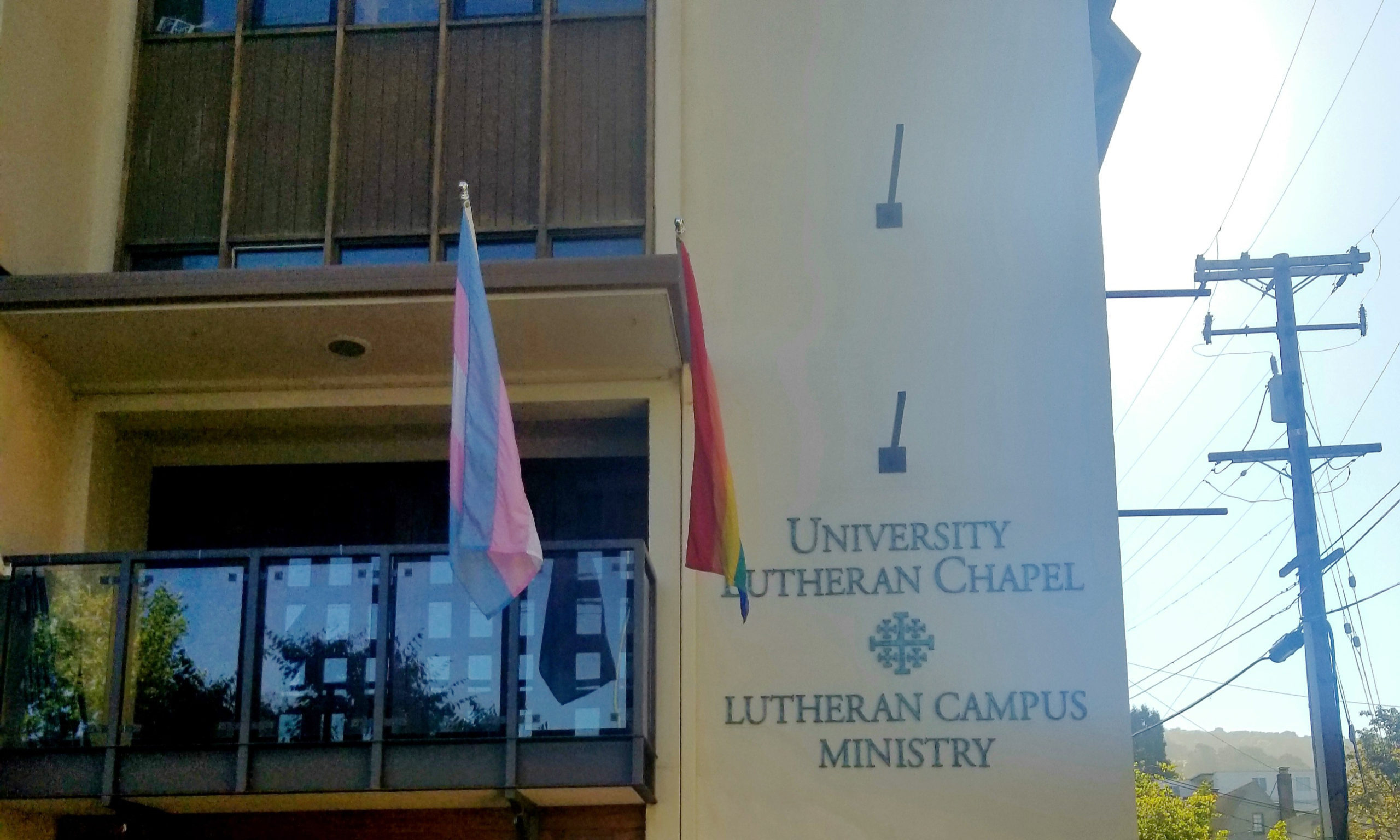By Melia Marquez
BERKELEY, Calif. — For nearly 50 years, the United Lutheran Chapel has stood alongside Berkeley as a sanctuary for those facing difficulties because of their immigration status, providing them with assistance and support. Amid increased ICE deportations and changes in asylum-seeking qualifications, the church continues to advocate for these individuals’ rights.
Berkeley was the first declared American sanctuary city, writing and passing a resolution in 1971 initially to protect American soldiers protesting the Vietnam War. “The language that was in that document has not changed,” said Locke Schultz Jaeger, a parishioner and daughter of former ULC pastor, the Rev. Gus Schultz, who was key in the resolution’s formation.
Over the years, many individuals have sought refuge in the church. Dissenting American soldiers in the Vietnam era were the first; then asylum seekers against the first Persian Gulf War sought help. In 1982, the church took in Central American migrants, protesting against government limitations on assigning immigrant status.
“It wasn’t about making a big statement,” said Schultz Jaeger. “It was about people showing up and needing something… and (us) acting on our beliefs.”
Currently, the church coordinates with both the Interfaith Movement for Human Integrity and the East Bay Interfaith Immigration Coalition to assist undocumented immigrants and help or sometimes house someone until court cases are resolved. Parishioners accompany immigrants to their court hearings and contribute donations to help pay for food, legal fees and other necessities.
Despite these available aids, several undocumented immigrants remain hesitant to take the church’s help, particularly its offer of staying in its apartment. That’s because in doing so, an immigrant is both announcing his or her whereabouts and also unable to leave the church apartment without potentially being detained.
“Every time (a migrant) leaves the space, they’re at risk,” congregation member Daniel Becker said. “Basically they’re reporting to the authorities where they are.”
While authorities can’t raid the chapel in violation of religious rights, they are still allowed to enter the building. In some instances, ICE agents have been more aggressive, recently using Oakland International Airport to deport and transport thousands of undocumented immigrants. This, despite Oakland’s own declaration of being a sanctuary city, which means its local police officers won’t cooperate with ICE agents.
The church operates in legal bounds and has a procedure if ICE were to come to its door, but the congregation is not entirely immune from government intervention.
“We want to offer a safe space,” Becker said, “provide a bed, a shower, a kitchen. But we’re not going to stop authorities from (entering).”
However, the congregants say they refuse to stay silent. The United Nations flag resides with gay and transgender pride flags above ULC’s entrance.
“(We’re) trying to make a statement,” Becker said, “showing who we support.”
Fellow parishioner Judy Timmel added that the chapel hosts letter-writing campaigns in which parishioners and community members alike write to government officials about national immigration policies.
The congregation of 70 may only have one apartment complex to spare, but it continues to offer all the help it can to undocumented immigrants. For Timmel, helping even one individual is the equivalent of doing God’s work.
“It’s about looking at why (someone) came and how we factor into that,” Schultz Jaeger added. “(Our congregation) seeks to be with someone, help them stay strong, and (offer) support.”
